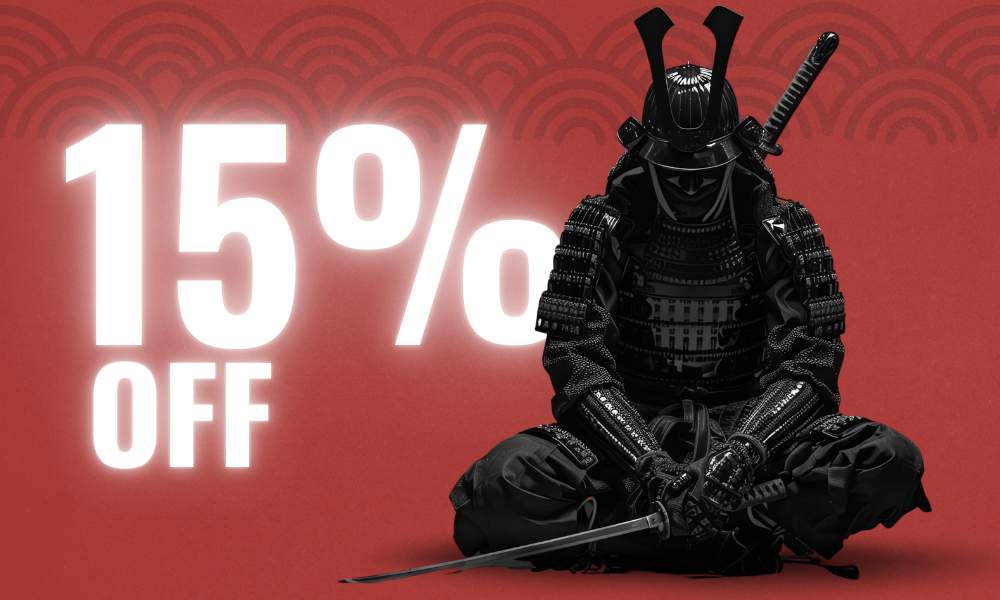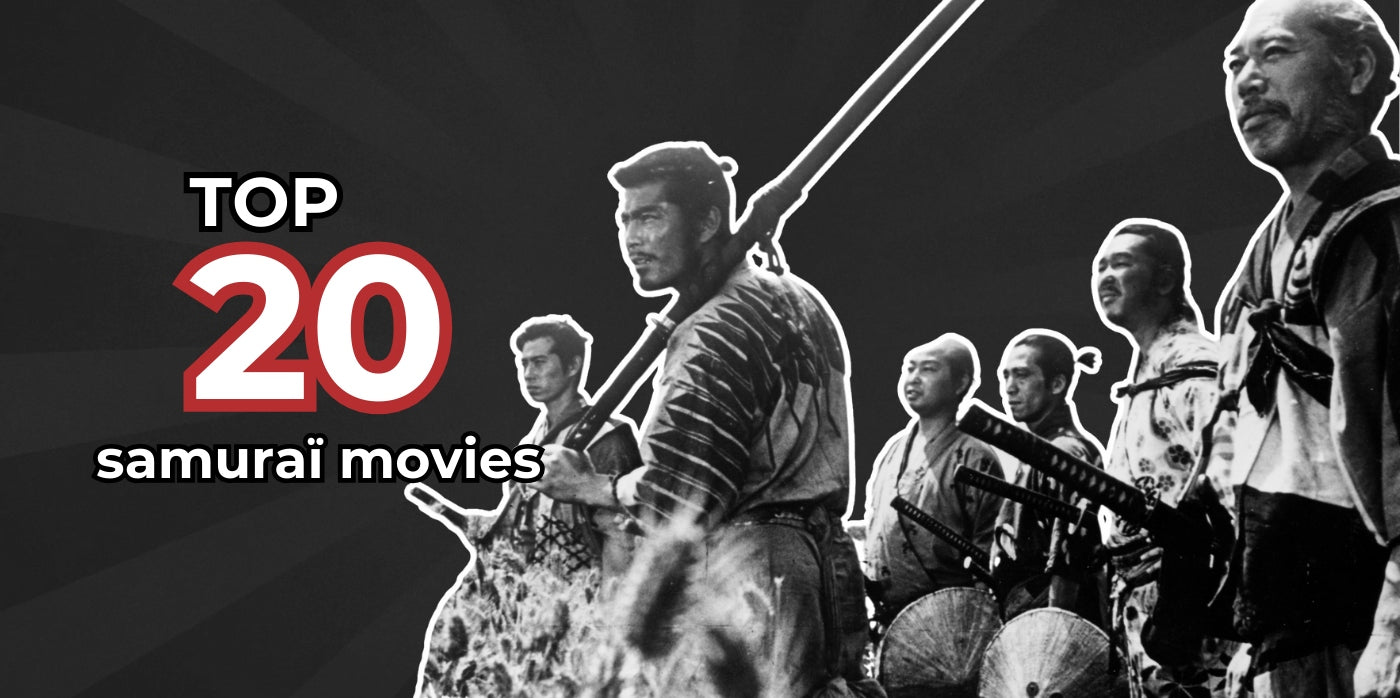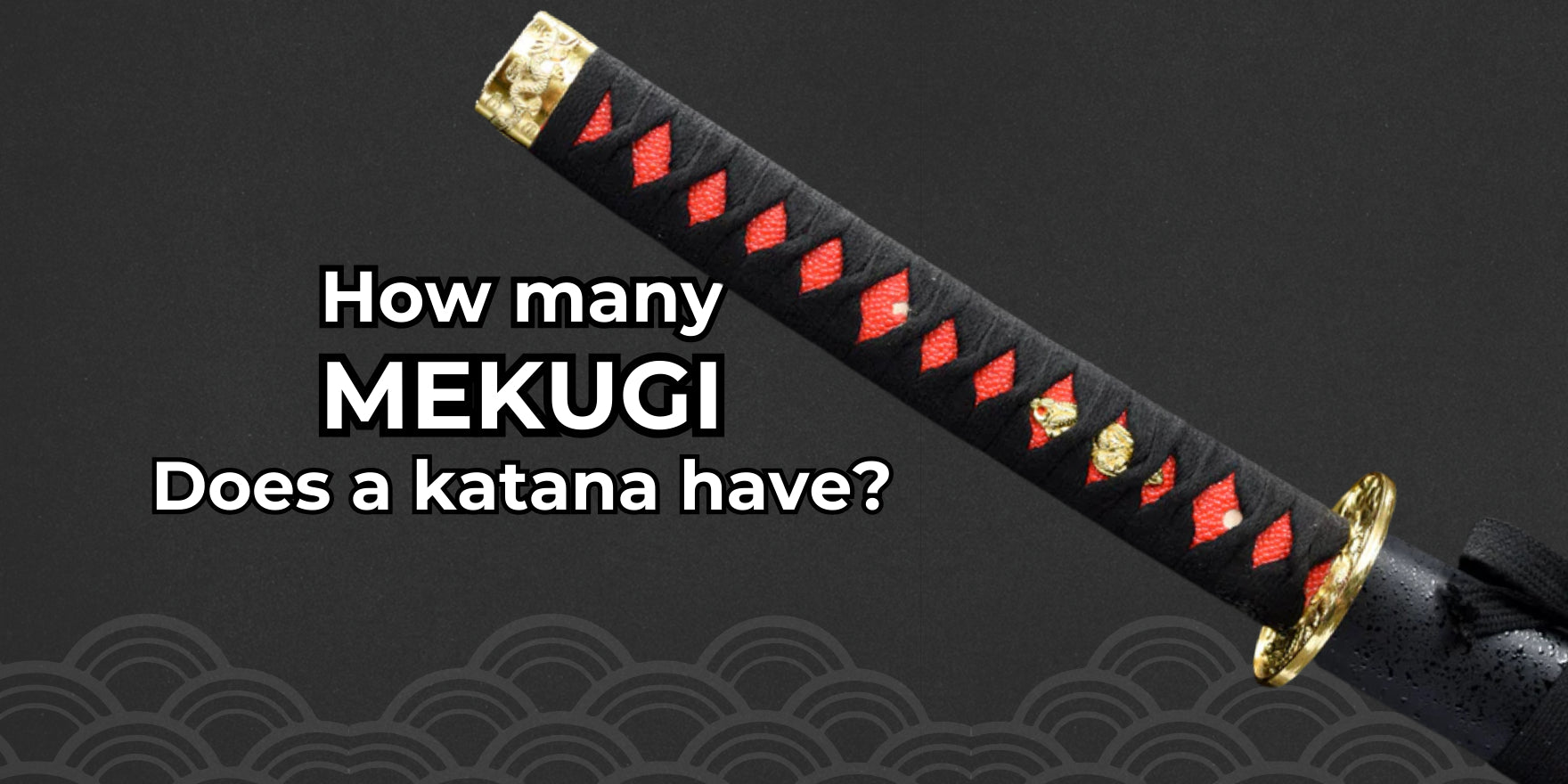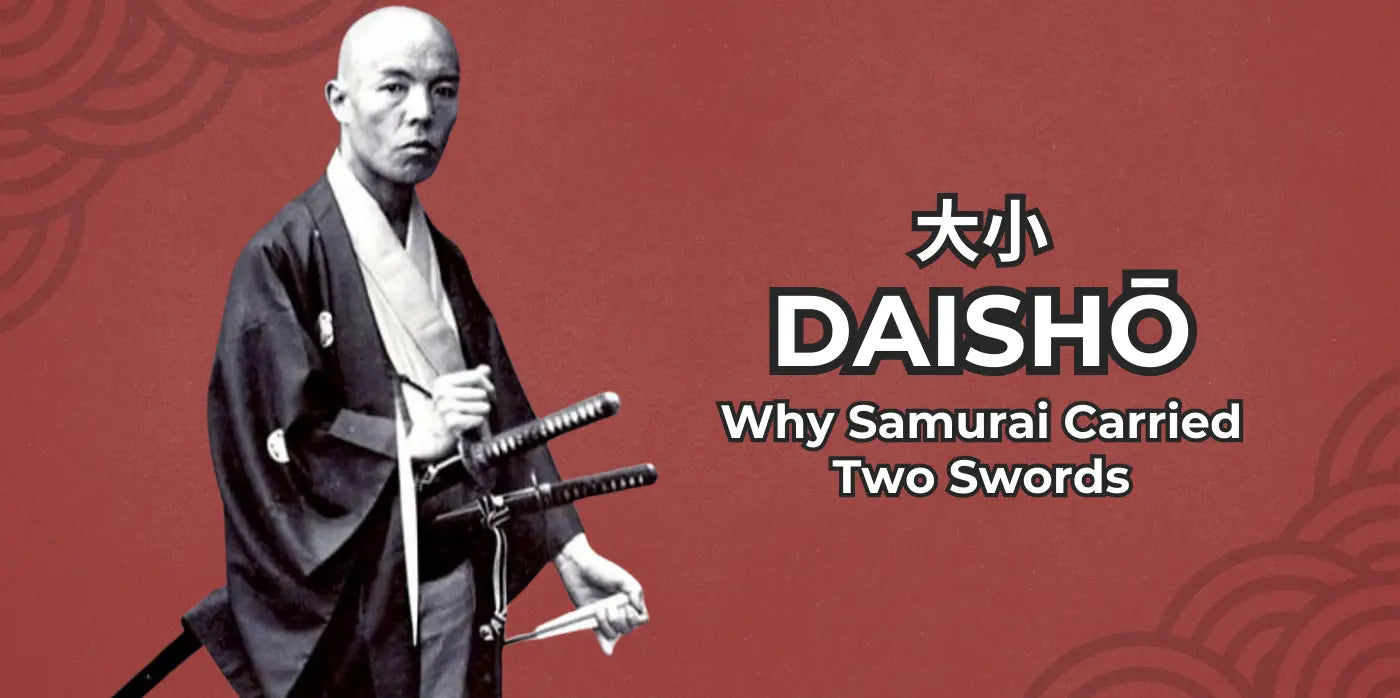Samurai movies hold a timeless allure, blending history, culture, and action in gripping tales of honor, betrayal, and epic swordplay. Whether you're a seasoned cinephile or new to this genre, here are the top 10 samurai movies that every fan should watch. Dive into the rich storytelling and artistic excellence that define this iconic genre.
Top 20 Samurai Movies
Whether you're drawn to action-packed battles, thought-provoking narratives, or stunning visuals, these top 10 samurai movies are a great starting point. Explore these masterpieces to experience the timeless appeal of samurai cinema, and let their stories of honor and conflict inspire you! Here is our top 10 Samurai movies:
1. Seven Samurai (1954)
Akira Kurosawa brings this iconic masterpiece to life with an incredible cast, including Toshiro Mifune, Takashi Shimura, and Isao Kimura. Seven Samurai is the ultimate samurai film, following seven ronin hired to protect a village from bandits.
With its masterful storytelling, dynamic characters, and groundbreaking cinematography, Seven Samurai set the gold standard for samurai epics. Its influence is undeniable, inspiring countless films, including The Magnificent Seven and modern ensemble action movies.
What sets Seven Samurai apart is its intricate character development. Each ronin has a unique backstory and motivation, adding layers of depth to their mission. The film’s climactic battle scenes are meticulously crafted, combining strategy and raw emotion, making it a cinematic landmark.

2. Yojimbo (1961)
This classic features Toshiro Mifune in the lead role alongside Eijiro Tono and Tatsuya Nakadai. Yojimbo is a delightful watch, combining clever plot twists with a satirical edge. The film follows a wandering ronin who manipulates two rival gangs in a small town. It also inspired Western classics like A Fistful of Dollars by Sergio Leone, blending Eastern and Western cinematic traditions seamlessly.
The film’s iconic scenes, such as the lone ronin standing against overwhelming odds, showcase Kurosawa’s talent for blending suspense and humor. Its subtle critique of greed and corruption resonates even in contemporary contexts.

3. Throne of Blood (1957)
With Toshiro Mifune and Isuzu Yamada in lead roles, Throne of Blood reimagines Shakespeare’s Macbeth in feudal Japan. The eerie visuals of fog-covered landscapes and Mifune’s mesmerizing performance as the doomed samurai Washizu elevate this adaptation into a cinematic masterpiece. The film’s exploration of fate and human weakness resonates across cultures.
What makes Throne of Blood unforgettable is its atmospheric tension. The ominous setting and chilling performances create an almost supernatural experience, leaving a lasting impression on audiences.

4. Harakiri (1962)
Masaki Kobayashi crafts this critique of the rigid code of samurai honor with a stellar cast led by Tatsuya Nakadai and Rentaro Mikuni. Harakiri tells a deeply thought-provoking story of vengeance and hypocrisy. The film examines how tradition and honor can be manipulated for personal gain, making it an unforgettable exploration of the samurai’s darker side.
The film’s emotional depth is unparalleled, portraying the devastating consequences of blind loyalty. Kobayashi ensures every frame is visually striking and narratively significant.

5. The Twilight Samurai (2002)
Yoji Yamada directs this intimate tale starring Hiroyuki Sanada, Rie Miyazawa, and Ren Osugi. The Twilight Samurai explores the life of Seibei Iguchi, a low-ranking samurai juggling duty, family, and love. A widower raising two daughters and caring for his ailing mother, Iguchi’s life is filled with struggles. Unlike action-heavy films, this poignant story focuses on the personal struggles of a samurai living in changing times.
What stands out in The Twilight Samurai is its quiet elegance. The film captures the essence of samurai life with authenticity, emphasizing themes of resilience and love amidst adversity.

6. Rashomon (1950)
This groundbreaking work by Akira Kurosawa features Toshiro Mifune, Machiko Kyo, and Masayuki Mori. Rashomon examines the subjectivity of truth through the recounting of a samurai’s murder. The story is told from multiple perspectives, each offering a different version of events. This innovative narrative structure has influenced filmmakers worldwide and remains a fascinating exploration of human nature and the elusive nature of truth.
The film’s philosophical undertones challenge viewers to question their perceptions of reality, making it a timeless masterpiece that goes beyond the samurai genre.

7. 13 Assassins (2010)
Takashi Miike directs this adrenaline-pumping film with a stellar cast, including Koji Yakusho, Takayuki Yamada, and Goro Inagaki. 13 Assassins tells the story of a mission to assassinate a sadistic lord, combining political intrigue and epic battle sequences. Set in the late Edo period, the film showcases a group of 13 warriors—12 samurai and one hunter—who risk everything for their cause. The second half explodes into a 45-minute battle scene that showcases incredible choreography and cinematography.
The film’s climactic showdown is a masterclass in action filmmaking, combining raw intensity with strategic brilliance. 13 Assassins is a thrilling spectacle that pays homage to its cinematic roots.

8. Ran (1985)
Tatsuya Nakadai, Akira Terao, and Jinpachi Nezu bring Kurosawa’s vision to life in Ran. This reimagining of Shakespeare’s King Lear unfolds in feudal Japan, exploring themes of power, chaos, and human frailty. The story follows an aging warlord whose kingdom crumbles due to the greed and betrayal of his sons.
The film’s breathtaking visuals and intricate storytelling make it a cinematic tour de force, cementing Kurosawa’s legacy as a master filmmaker.

9. Zatoichi (2003)
Takeshi Kitano directs and stars in this fresh take on the classic blind swordsman character. Featuring Tadanobu Asano and Michiyo Okusu, Zatoichi is a thrilling mix of humor, action, and drama. Kitano’s portrayal breathes new life into the iconic character, blending brutal swordplay with moments of levity and charm.
The film’s unique blend of tradition and innovation ensures its place as a modern classic, offering a fresh perspective on samurai lore.

10. Sword of Doom (1966)
Kihachi Okamoto brings a dark and intense tale to life with Tatsuya Nakadai, Toshiro Mifune, and Yuzo Kayama in leading roles. Sword of Doom follows Ryunosuke Tsukue, a sociopathic samurai driven by violence and moral decay. Nakadai’s chilling performance as Ryunosuke is both horrifying and compelling. The film stands out for its psychological depth and atmospheric tension.
The film’s haunting portrayal of a morally bankrupt samurai challenges conventional narratives, making it a thought-provoking and unforgettable watch.

11. Lone Wolf and Cub: Baby Cart in the Land of Demons (1973)
Directed by Kenji Misumi and starring Tomisaburō Wakayama as the wandering assassin Ogami Itō, this fifth installment of the Lone Wolf and Cub series showcases a tale of intense battles and moral dilemmas. Hired to prevent a feudal lord from favoring his illegitimate daughter as heir, Ogami faces five assassins in an increasingly stylized and dramatic narrative. With its exaggerated action and over-the-top storytelling, the film is a grindhouse favorite that explores themes of duty and sacrifice.

12. The 47 Ronin (1941)
A classic by Kenji Mizoguchi, this adaptation of Japan’s most enduring tale of loyalty captures the emotional depth and philosophical weight of the samurai code. Spanning two parts and nearly four hours, the film forgoes flashy action for a contemplative approach, focusing on the moral and social implications of the ronin’s quest for vengeance. Chōjūrō Kawarasaki delivers a poignant performance as Ōishi, the leader of the ronin.

13. Samurai Rebellion (1967)
Directed by Masaki Kobayashi, this film stars Toshirō Mifune in one of his most emotionally charged roles. It tells the story of a samurai who defies his lord’s oppressive demands to protect his family. Exploring themes of love, duty, and defiance, the film is both a critique of feudal hierarchy and a powerful drama. Kobayashi’s precise direction and the stellar performances elevate the film into one of the most emotionally gripping samurai tales.

14. Samurai Assassin (1965)
This suspenseful historical thriller by Kihachi Okamoto stars Toshirō Mifune as a samurai embroiled in a deadly plot to assassinate a high-ranking official. Set during the chaotic end of Japan’s isolationist Tokugawa era, the film weaves personal ambition with political intrigue. The moody cinematography and Mifune’s brooding performance make it a standout entry in the genre.

15. Sanjuro (1962)
A sequel to Kurosawa’s Yojimbo, this film blends humor and action to create a more satirical take on the samurai archetype. With Toshirō Mifune reprising his role as the wandering ronin, Sanjuro offers a lighter tone compared to its predecessor while still delivering sharp commentary on corruption and honor. The clever script and dynamic pacing ensure its place among Kurosawa’s finest works.

16. Zatoichi and the One-Armed Swordsman (1971)
A thrilling crossover between the Zatoichi and One-Armed Swordsman franchises, this film, directed by Kimiyoshi Yasuda, brings together two iconic characters in a clash of styles and cultures. Featuring the blind swordsman Zatoichi (Shintarō Katsu) and the one-armed swordsman (Jimmy Wang Yu), the film is a showcase of exhilarating action and dramatic tension, blending the best of Japanese and Hong Kong cinema traditions.

17. Shogun Assassin (1980)
Created for Western audiences, this re-edited version of the Lone Wolf and Cub series combines footage from the first two films into a high-octane action epic. Directed by Robert Houston, the film features a memorable synth soundtrack and relentless swordplay. While it diverges from the nuanced storytelling of the original series, it serves as a thrilling introduction to the samurai genre for international viewers.

18. Lady Snowblood (1973)
Directed by Toshiya Fujita, this visually stunning revenge tale stars Meiko Kaji as Yuki, an assassin seeking vengeance for her family. With breathtaking cinematography and intense swordplay, Lady Snowblood inspired Quentin Tarantino’s Kill Bill. The film’s combination of beauty and brutality creates an unforgettable experience.

19. The Hidden Fortress (1958)
Kurosawa’s adventure epic, starring Toshirō Mifune, is known for its influence on Star Wars. The story follows two peasants aiding a princess and her general across enemy lines, blending humor, action, and political intrigue. Kurosawa’s innovative cinematography and engaging storytelling make it a must-watch.

20. Kagemusha (1980)
This visually rich Kurosawa film tells the story of a thief who impersonates a powerful warlord to maintain order in the clan. Featuring Tatsuya Nakadai in a compelling dual role, Kagemusha explores themes of identity, loyalty, and power. Its stunning visuals and epic scale cement its place among Kurosawa’s greatest works.






